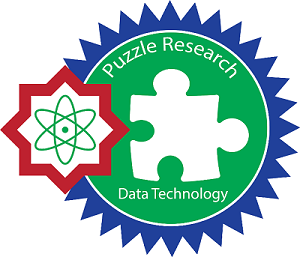ADDITIONAL MENU
Apriori Algorithm through RapidMiner for Age Patterns of Homeless and Beggars
Abstract
Homeless and beggars are one of the problems in urban areas because they can interfere public order, security, stability and urban development. The efforts conducted are still focused on how to manage homeless and beggars, but not for the prevention. One method that can be done to solve this problem is by determining the age pattern of homeless and beggars by implementing Algoritma Apriori. Apriori Algorithm is an Association Rule method in data mining to determine frequent item set that serves to help in finding patterns in a data (frequent pattern mining). The manual calculation through Apriori Algorithm obtaines combination pattern of 11 rules with a minimum support value of 25% and the highest confidence value of 100%. The evaluation of the Apriori Algorithm implementation is using the RapidMiner. RapidMiner application is one of the data mining processing software, including text analysis, extracting patterns from data sets and combining them with statistical methods, artificial intelligence, and databases to obtain high quality information from processed data. The test results showed a comparison of the age patterns of homeless and beggars who had the potential to become homeless and beggars from of testing with the RapidMiner application and manual calculations using the Apriori Algorithm.
Full Text:
PDFReferences
I. Riskawati And A. Syani, “Faktor Penyebab Terjadinya Gelandangan Dan Pengemis (Studi Pada Gelandangan Dan Pengemis Di Kecamatan Tanjung Karang Pusat Kota Bandar Lampung),” J. Sociol., Vol. 1, No. 1, Pp. 43–52.
P. Daerah And I. Pendahuluan, “Penanggulangan Pengemis Dan Gelandangan Di Kota Pekanbaru,” No. 40, 1983.
S. Pelaksanaan, P. Gelandangan, And K. Pekanbaru, “Strategi Pelaksanaan Pembinaan Gelandangan Dan Pengemis Oleh Dinas Sosial Dan Pemakaman Kota Pekanbaru.”
R. Yanto And R. Khoiriah, “Implementasi Data Mining Dengan Metode Algoritma Apriori Dalam Menentukan Pola Pembelian Obat,” Citec J., Vol. 2, Pp. 102–113, 2015.
R. Sistem And E. Elisa, “Jurnal Resti Dengan Algoritma Apriori,” Resti, Vol. 2, No. 2, Pp. 472–478, 2018.
P. Data, Y. Digunakan, D. Minggu, D. I. Bulan, And O. Tahun, “Algoritma Apriori Untuk Rekomendasi Penawaran Produk Di,” Vol. 8, 2015.
Shalsabilla Luthfi Dewati, “Analisa Pola Transaksi Obat Menggunakan Algoritma Apriori,” 2014.
U. Mazida, R. A. Pramunendar, F. I. Komputer, And U. D. Nuswantoro, “Analisis Algoritma Apriori Untuk Rekomendasi Penempatan Buku Pada Perpustakaan,” Pp. 1–8.
B. R. C. T. I, A. A. Gafar, N. Fajriani, U. Ramdani, F. R. Uyun, Y. P. P, And N. Ransi, “Implemetasi K-Means Clustering Pada Rapidminer Untuk Analisis Daerah Rawan Kecelakaan,” No. April, Pp. 58–62, 2017.
A. Primajaya, B. N. Sari, T. Informatika, F. I. Komputer, U. S. Karawang, A. Info, And R. Forest, “Random Forest Algorithm For Prediction Of Precipitation,” Indones. J. Artif. Intell. Data Min., Vol. 1, No. 1, Pp. 27–31, 2018.
DOI: http://dx.doi.org/10.24014/ijaidm.v1i2.5670
Refbacks
- There are currently no refbacks.
Office and Secretariat:
Big Data Research Centre
Puzzle Research Data Technology (Predatech)
Laboratory Building 1st Floor of Faculty of Science and Technology
UIN Sultan Syarif Kasim Riau
Jl. HR. Soebrantas KM. 18.5 No. 155 Pekanbaru Riau – 28293
Website: http://predatech.uin-suska.ac.id/ijaidm
Email: ijaidm@uin-suska.ac.id
e-Journal: http://ejournal.uin-suska.ac.id/index.php/ijaidm
Phone: 085275359942
Journal Indexing:
Google Scholar | ROAD | PKP Index | BASE | ESJI | General Impact Factor | Garuda | Moraref | One Search | Cite Factor | Crossref | WorldCat | Neliti | SINTA | Dimensions | ICI Index Copernicus
IJAIDM Stats










